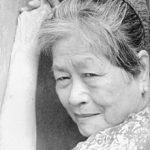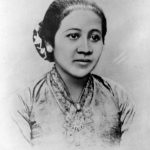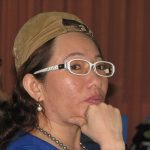
Rosa Henson
“I am telling my story so that they will feel humiliated. It is true: I am an avenger of the dead.” These were the words of María Rosa Luna Henson (1927-1997), referring to the Japanese soldiers who, during the occupation of the Philippines during World War II, forced her and hundreds of other Filipinas to become sex slaves, or ‘comfort women’. Henson, initially a resistance fighter, was captured by the Japanese in 1943 and repeatedly raped over a period of nine months. In 1992, aged 65, she decided to speak out about her ordeal – the first of her generation to speak about the war crimes. Hundreds of others followed her example, bringing their stories to the world’s attention and kickstarting a process of recognition, reconciliation and compensation from the Japanese government that continues to this day.

Ambiga Sreenevasan
Currently president of Malaysia’s National Human Rights Society (Hakam), Ambiga Sreenevasan has a long record in the field of human rights in her country. After studying law and serving on the bar in the UK, she returned to her home country in 1982 to work as a lawyer. She served as president of the Malaysian Bar Association from 2007 to 2009 and co-chaired the electoral reform movement Bershih. She is a strong advocate for women’s rights, repeatedly confronting sexism by parliamentarians and heading a successful campaign for women’s testimony to be given equal weight in sharia courts. She has also fought for the rights of indigenous people. In 2009, she was one of eight recipients of the US Secretary of State’s International Women of Courage award. Her efforts have drawn the ire of many, with hate mail, death threats and a Molotov cocktail directed towards her.

Prateep Ungsongtham Hata
Born in a Bangkok slum in 1952, the daughter of a Chinese immigrant father and a Thai mother, Prateep Ungsongtham Hata is notable for her decades of work supporting the poor residents of the capital’s Khlong Toei district. Having no birth certificate, she was denied a state education and gained a deep personal knowledge of the difficulties of paying for schooling by earning her own money to pay for it. In 1968, she started her own makeshift school, an organisation that grew into the Duang Prateep (Flame of Hope) Foundation, established using the prize money from her Ramon Magsaysay Award in 1978. Thailand held its first direct elections for the senate in 2000 and she became senator for Bangkok, serving for six years. During her time as senator she chaired the Social Development and Human Security Commission, which worked with 14 slum communities in the Thai capital.

Raden Ajeng Kartini
Hailed as Indonesia’s first feminist, Raden Ajeng Kartini was born in April 1879 in Java to an aristocratic family. Unusually for the times, she received a primary education along with the children of Dutch colonial planters and came under the influence of the feminist wife of one of the planters. From the age of 12, following local tradition, she was kept in seclusion until married. During that period, she wrote letters protesting the gender inequality of Javanese traditions. In 1903, under family pressure, she married a local regent 26 years her senior – despite being offered a scholarship to study abroad. The same year, she persuaded her husband to allow her to open Indonesia’s first primary school that did not discriminate on the basis of class. Posthumously, Mr J. H. Abendanon, the Minister for Culture, Religion and Industry in the East Indies, collected and published her letters, her words giving many Indonesian women inspiration to fight for crucial rights.

Ta Phong Tan
A former Communist party of Vietnam member and former officer in the Vietnamese security forces, in 2012, Ta Phong Tan earned herself a ten-year prison sentence for criticising the party. She began blogging in 2004 and lost her job and party membership in 2006. Undimmed, she continued to post critical pieces and exposés on her blog, Cong Ly va Su That (Justice and Truth). She was eventually arrested in 2011, and in July 2012, while Tan was in detention, her mother self-immolated in front of a government office, subsequently dying of her wounds. In September that year, Tan was handed her jail sentence, standing trial with two other prominent bloggers for writing anti-state propaganda. Released after three years, she now lives in the US.


